Maletic where he belongs — getting his shot in Division I hoops
Marko Maletic, a former Saunders High School and Fanshawe College star, is finally playing Division I basketball — at Long Island University — despite a winding road filled with hurdles and non-believers.
(Photo courtesy LIU Athletics).
* * *
Marko Maletic waited his entire life for that shot.
Last Monday, Nov. 7, Maletic made his Division I debut for Long Island University on the road against the University of Utah. Nearly five minutes into the first half, he hit a deep, right-wing three-pointer to give LIU its first bucket of the new season. (Yes, it was a rough game for the Sharks.) Two years removed from his last serious competition, the London native ended up playing 18 minutes, tallying six points, four rebounds, and two assists in an 89-48 loss to the Utes.
But this isn’t a story about what just recently happened on the court; this is a story about what it took to take that shot – or any shot, really – in the first place.
* * *
Maletic was brought to the game by his parents, Dragoslav and Daliborku, Bosnian immigrants who fled their home to Germany and later to Canada when ethnic violence and eventual war engulfed the former communist state of Yugoslavia. Growing up, the Canadian-born Maletic saw his father’s love for soccer slowly pivot to hoops. First, they watched the game on TV, eventually his parents started buying Maletic his own hoop and ball, then taking him to local gyms and outdoor courts as his interest in the game grew.
There was more than passion for play involved – although there was plenty of that. It was the era of Vlade Divac, the 7-foot-1 Yugoslavian centre who became one of the first European stars to have a major impact in the NBA after being drafted by the Los Angeles Lakers in 1989. The Serbian star might be best remembered for his six-season run with the Sacramento Kings. There, Divac, along with fellow countryman Predrag Stojakovic, helped make the team a championship contender.
Divac also represented something larger to Yugoslavians. A powerful Serbian voice on the national team during a turbulent time, his legacy extends beyond the court. It’s no wonder an immigrant family 7,500 km away would gravitate to the game played by its bigger-than-the-game star.
On London courts, Maletic learned the game playing against older players – guys who might not have been as talented but had an edge in years. They made him work for everything in those pickup games.
“Those older guys – they were the most vital things to help me build my confidence as a young player,” Maletic said. “They’re a lot better than you. They’re bigger than you, stronger than you. You have to be more creative in the way you score.”
Turns out, he has needed every ounce of that confidence for the years to come.
* * *
Nobody believes in Marko Maletic like Dave Sewell.
The London performance and shot guru has worked with Maletic since Grade 11 when Sewell saw something special. Maletic was a young man unafraid of any moment. No nerves. Sure, he could shoot at a high level, but a lot of young players can shoot. Maletic was different – he had a confidence you cannot teach.
Yes, he needed to work on rounding out his game. Defense. Intensity. Intangibles that make the good great. He also needed to be seen. Exposure is key for talented young players in modern basketball; Maletic struggled to get that playing in Southwestern Ontario.
That’s where Sewell came in.
“The first thing I asked him was how invested was he willing to be – then we went from there,” the coach said.
Despite averaging 29 points per game while at Saunders Secondary School, helping the school reach the city finals, and playing two years of AAU with Gold Medal Basketball in London, Maletic didn’t receive many offers to continue his game at the next level.
“I do think a lot of people doubted his ability,” Sewell said. “At that time, the high school scene was a little weaker and that caused a lot of people to question his overall ability. Yeah, they could see that he could shoot, but they wanted to know what else he could do. People questioned his work ethic. People questioned him on the defensive end. People wondered what more could he bring to the game besides a great shot.”
Maletic’s family weighed the possibility of getting exposure at a prep school; they knew the brighter spotlight in bigger cities might capture his talents better. But the costs of that – financial and otherwise – proved too much.
Eventually, Maletic opted to take the lone offer he had to play at the next level from Fanshawe College. That offer still holds a special meaning, because without it, the journey might have been over before it began.
Maletic explained, “Tony (Marcotullio, Fanshawe head coach) and Dave (Sewell) were the only ones who wanted to give me an opportunity. They were my first chance, my first opportunity. They were the only ones who believed in me.”
In 2019-2020, the Falcon forward scored 17 points in his collegiate debut against Conestoga College on Oct. 19, and then scored a career high 41 points (including 7-13 from beyond the arc) three nights later against Sheridan College on Oct. 22. He was named the OCAA Rookie of the Year, Fanshawe Rookie of the year, and a member of the OCAA All-Rookie Team. He was also named OCAA Second-Team All-Star.
On the season, Maletic started 19 games, averaging 19.9 points per game, shooting 45.8 per cent from the field and 37.6 per cent from three. He led the Falcons with 64 made threes, breaking the program’s season record.
“Fanshawe helped me achieve what I wanted to achieve,” Maletic said. “When I started working with Tony and Dave, our goals were always higher. They knew I fantasized about Division I and playing professional basketball. In that year at Fanshawe, I achieved what I should have achieved. That really helped me. It reaffirmed my confidence in my game that I can still play professional basketball.”
(Photo: Fanshawe Falcons).
* * *
Despite his success, however, Maletic had trouble getting someone to buy into his talents.
“People tend to look down on the OCAA, the college level in Canada. But they need to realize that’s a good league. They need to recognize USPORT is a good league,” Sewell said. “Some of these guys could be Division I players. Every route is what it needs to be; everybody’s story is a bit different.”
With the world locked down due to COVID-19, Maletic still managed to play by going the junior college route in the U.S. by taking the court for Laramie County Community College in Cheyenne, Wyoming. He lasted 12 games into the Golden Eagles season before a torn MCL and dislocated patella took the remainder of his 2021 season.
He finished his brief juco career averaging 12.4 points, 2.8 rebounds, and 0.8 assists per game.
“This was my first major injury ever. When it when it happened, when my knee gave out, I was like, ‘Whoa, that’s not supposed to happen,’” he said. “You hate to go down, hate to get injured, hate to lose the rest of the season. It’s obviously super depressing to just sit there and watch your team and you’re unable to do anything to help them.
“That was also supposed to be my year where I would finish and get that Division I offer. I was left wondering, ‘Where do I go here?’”
That was Feb. 15, 2021. Little did he know, he wouldn’t play again for nearly two years.
* * *
After the season, Maletic returned to London to rehab his body and continue to work in the gym.
“There were only a few guys who were really high on me after all that,” he said. “Everybody else didn’t really believe in me. They didn’t think I had the body. They didn’t think I was good enough.”
Already weighing his future when his mom fell ill, Maletic pressed the pause button – 2021 was going to be a breather. He knew it was a gamble, but he also knew he needed it.
While removed from game play, he was still mixing it up competitively. Sewell had him working out with high-level preps, college players, and pros, including NBA first-round draft pick Shaedon Sharpe.
There, Maletic saw what it took to be a pro. He saw players taking seriously every drill, every scrimmage, every practice. He saw players taking care of their bodies at a high level, from stretching and nutrition, to weights and training. He saw that the pro life isn’t always glamourous but instead a lot of work behind the scenes.
“I saw how nothing comes without hard work,” Maletic said.
He also saw that he could hold his own against some outstanding talent.
“It reaffirmed my confidence and my knowledge of the game and me knowing that I can compete with these guys. I can play professional basketball. I think that time was big on that,” Maletic said. “Taking that year off was the best thing for me. I improved my body and I got to work with a bunch of guys who I probably wouldn’t have been able to work with if I went to some random school.”
Those practices also confirmed what Sewell had believed all along.
“Up until this point, it was a little bit of everything working against him. People hadn’t seen him play against high enough guys – but that’s exactly why I was so high on him,” he said. “I had him working out with the best, with all these pros. I had seen it in him and seen it at a high level. That’s where the belief came for me.”
* * *
Division I had never been closer. But when workouts for Oakland University and Central Michigan came up empty, Long Island University was Maletic’s last shot. It was getting late in the recruiting season – passed to be exact, as Sewell and Co. made the late-summer for Maletic to join a DI squad this fall.
“This was really the one-and-done opportunity – if I didn’t get that, I was going to look to universities in Canada, maybe Western or elsewhere in Canada,” Maletic said. “I came into the workout with LIU knowing I had to give it my all.”
He shot the lights out in that tryout – showed all the talent Sewell had seen for years. Afterwards, LIU made him an offer to join the squad for the 2022-23 season.
“It was like the weight of the world lifted off my shoulders – getting that call, it was a big moment,” Maletic said. “I thought of all the people in the city who didn’t really believe in me, who didn’t think it was going to happen, who didn’t think it was possible, it was kind of like a nice feeling for that. as well.”
(Photo courtesy LIU Athletics).
* * *
LIU couldn’t be a better spot for Maletic, who lands on the squad of another great teacher of the game. LIU head coach Rod Strickland is a former All-NBA point guard and member of the New York City Basketball Hall of Fame.
Strickland is in his first year at the Brookville, New York, university, arriving from the NBA G League where he served as director of the professional path program since 2018. In that role, Strickland evaluated, educated, and mentored top high school prospects in the professional path initiative to prepare them for a career in the NBA. He also served as a player and coach relations manager and program director of G League Ignite, a selective team of the most elite NBA prospects.
Maletic has already seen the difference. “DI is definitely different for me,” he said. “Guys are way more serious. Coaches are way more serious. You’re playing with some athletic guys every night.
“Those first few years, I wasn’t super serious about basketball. I didn’t truly understand the amount of work that was needed to put in. That’s where Dave came and showed me what it really takes to be a professional basketball player. After years and years and years of working, I am here now with a lot of thanks to him.”
Ask Sewell and he’ll tell you this is only the beginning for the young man he’s believed in all along: “If you follow how the game has evolved, especially at the international level, this kid is a prime-time player. That has always been my belief. He definitely bet on himself – and it has paid off.”
All he needed was that first shot.
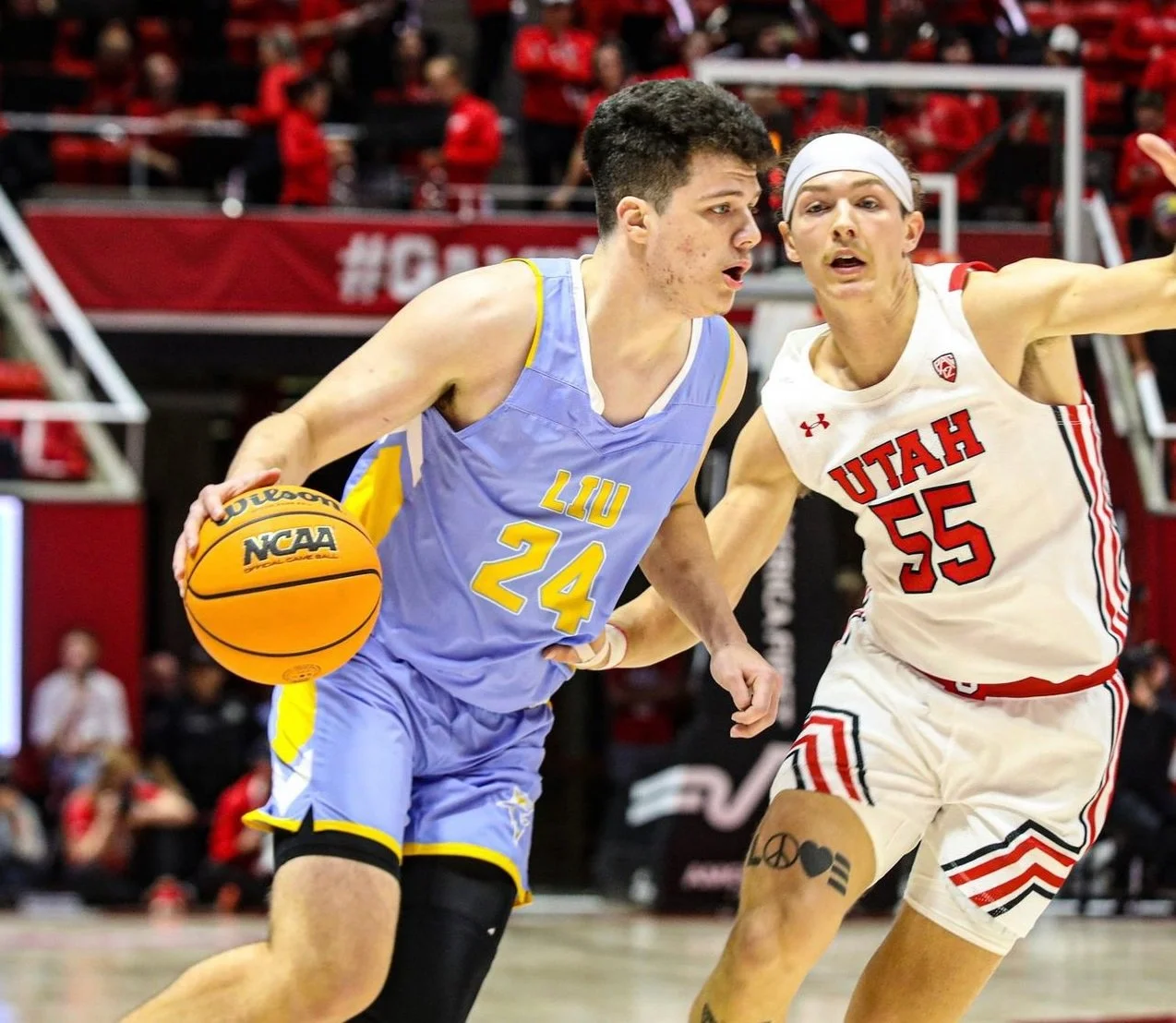

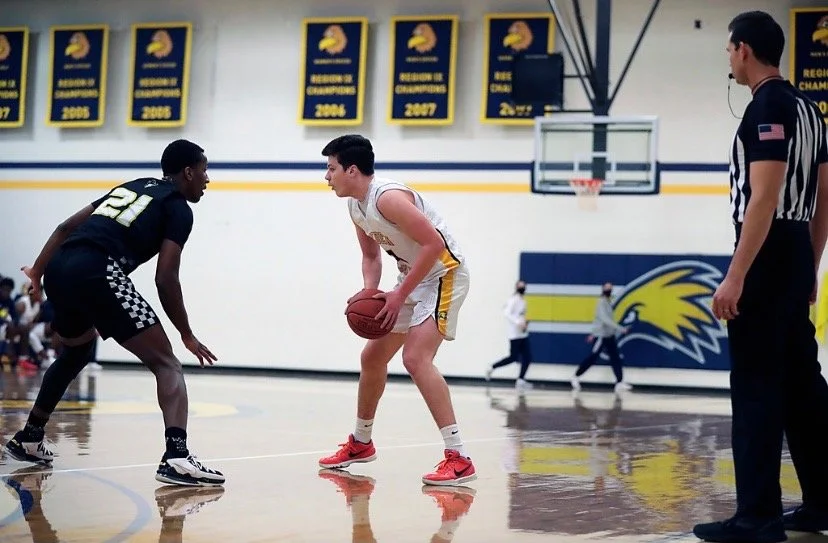


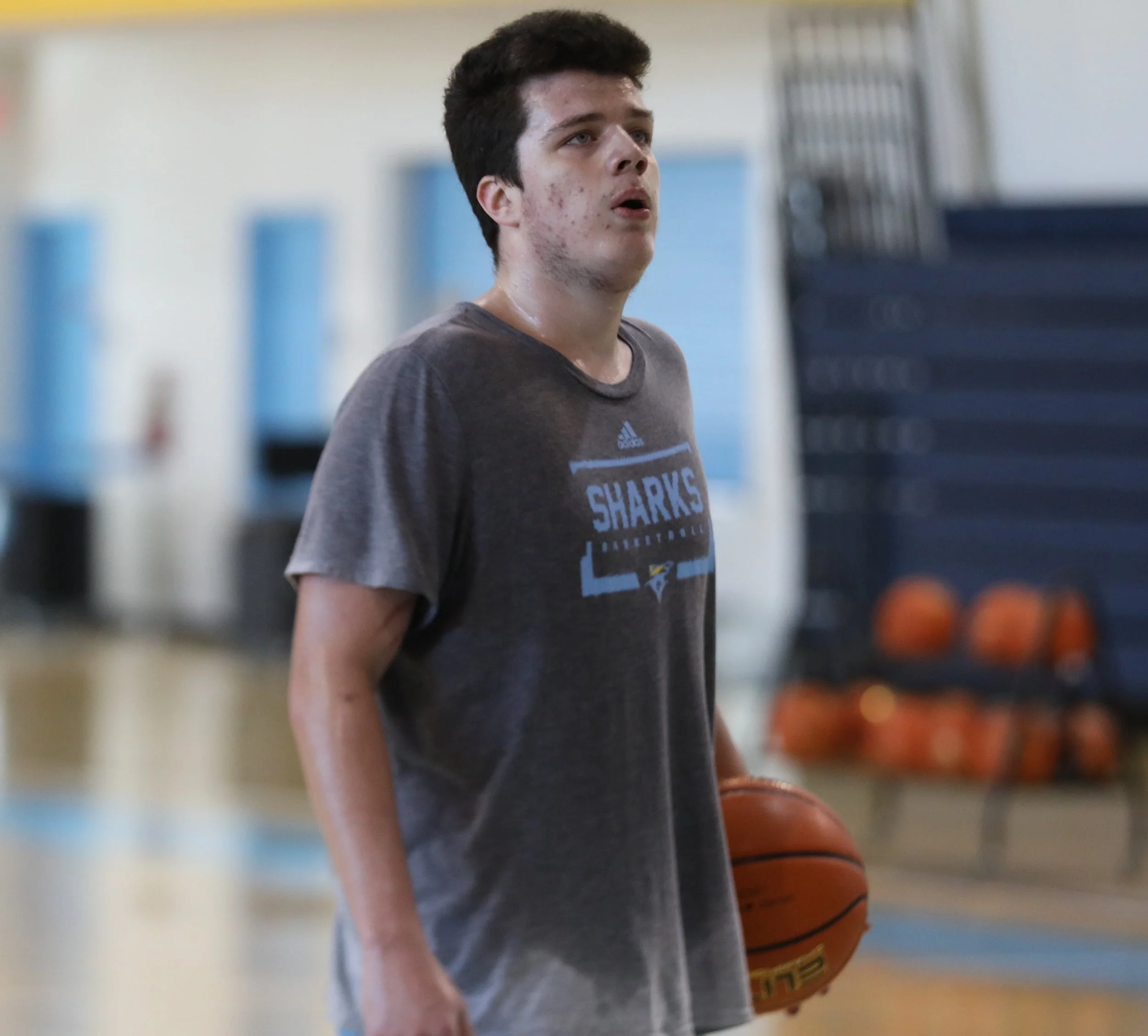

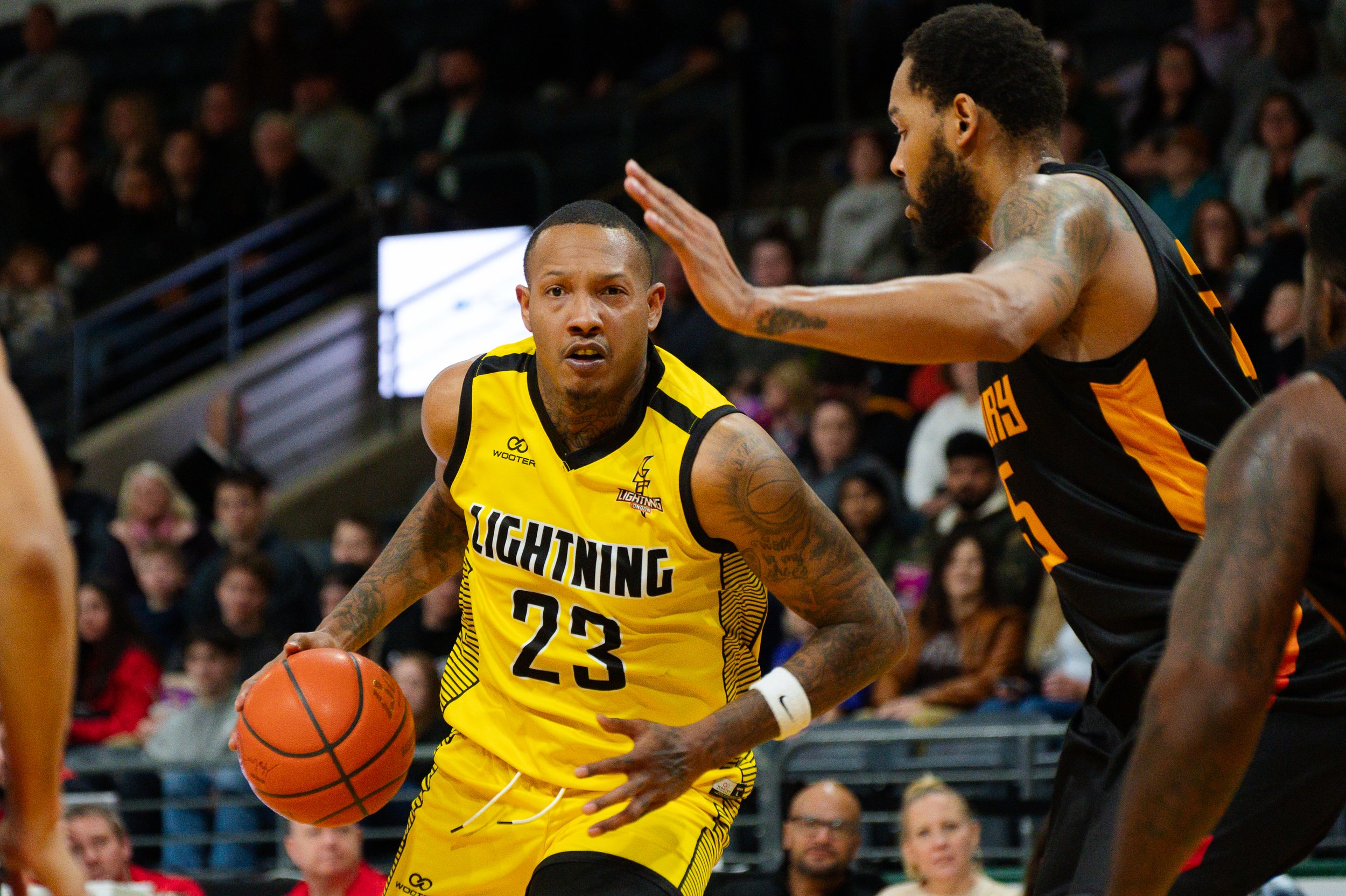
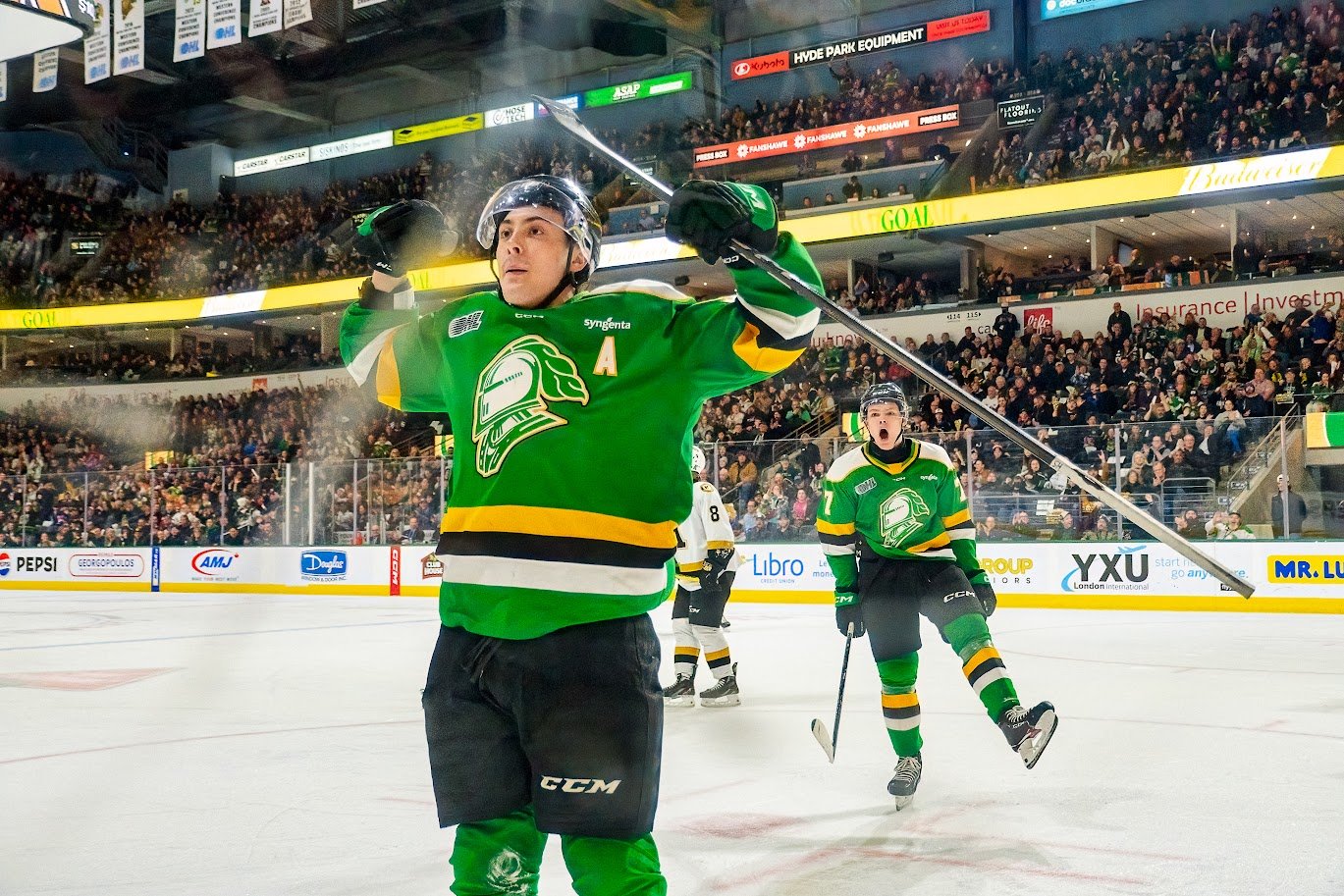
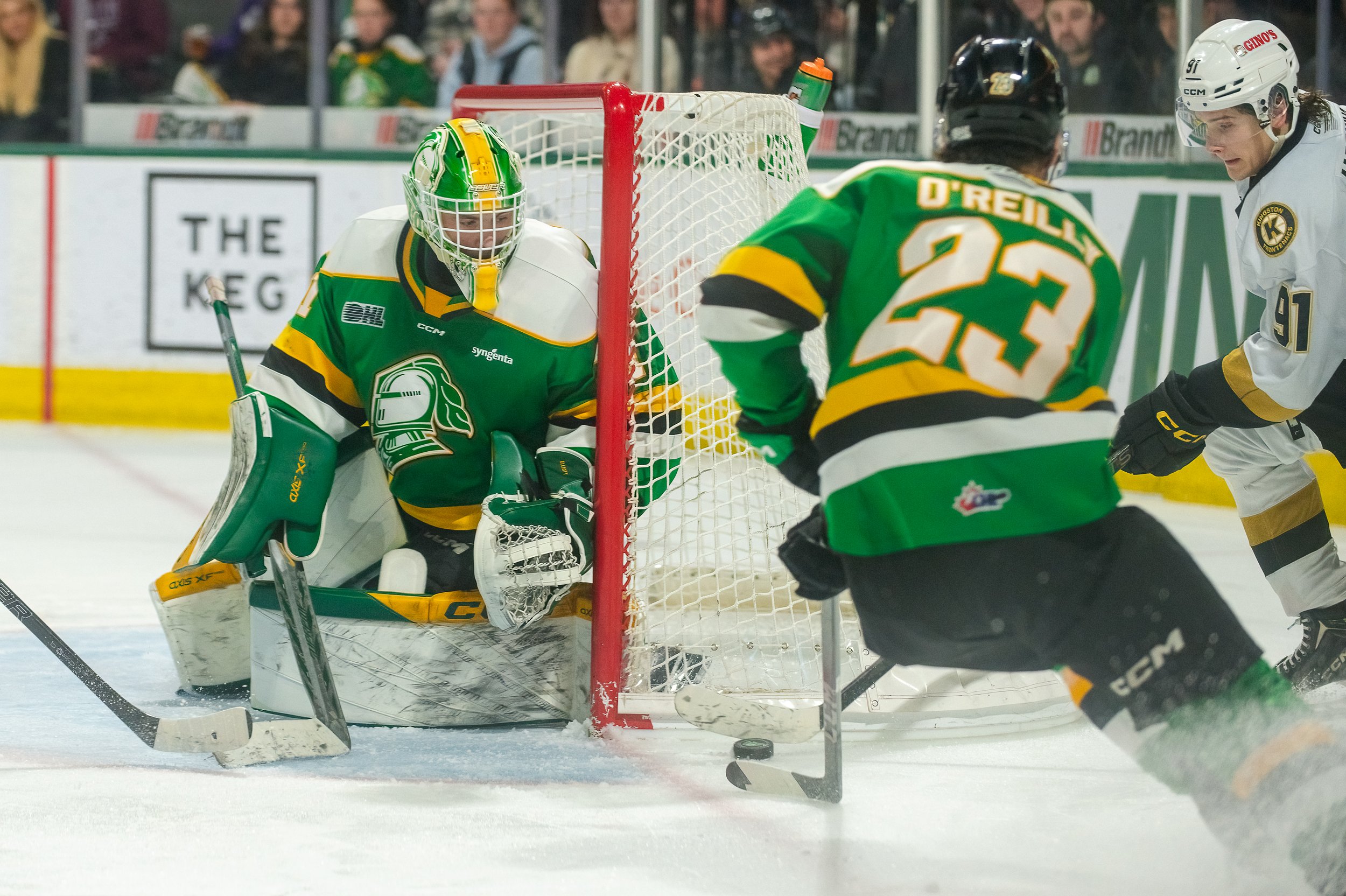
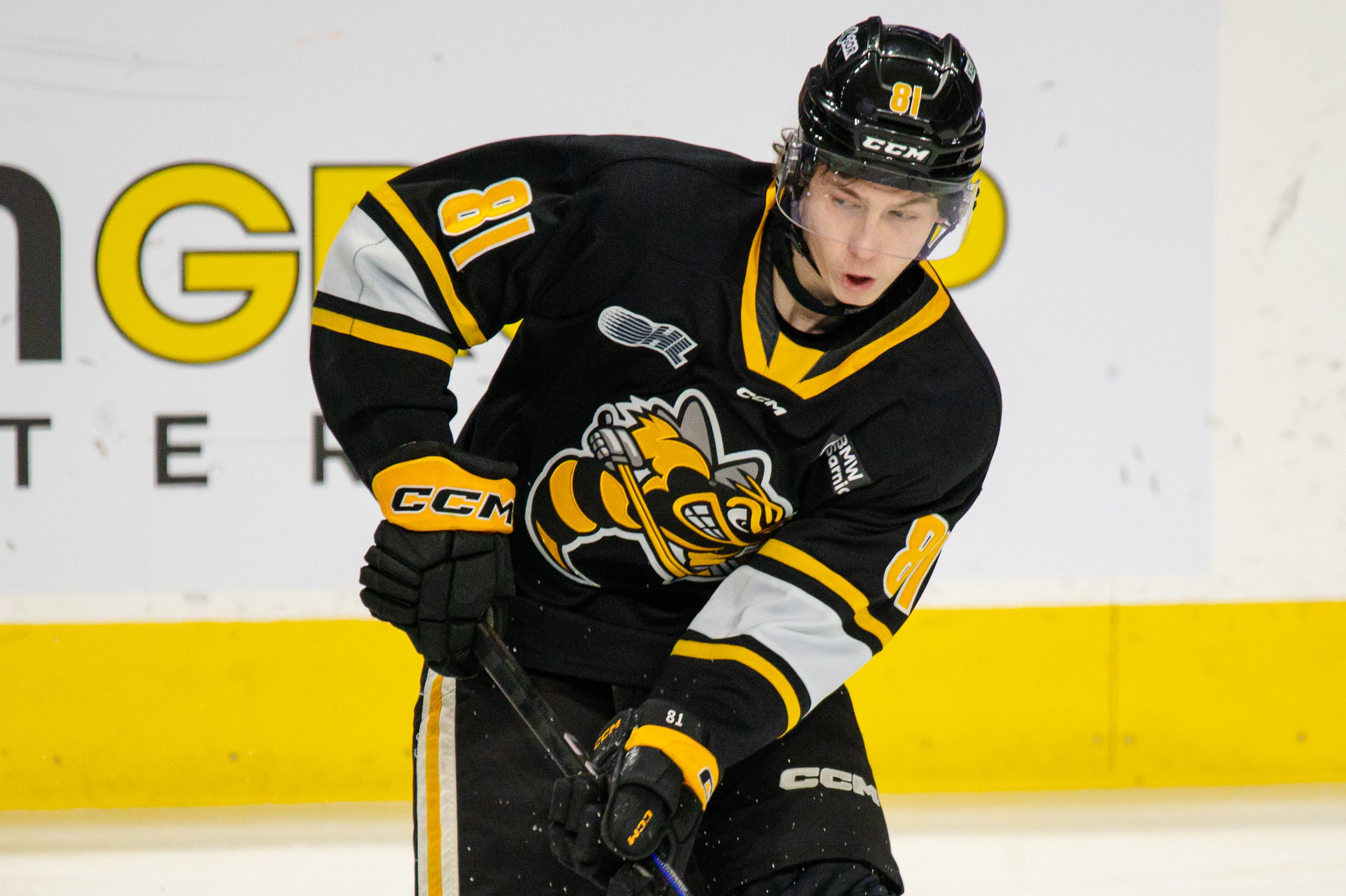

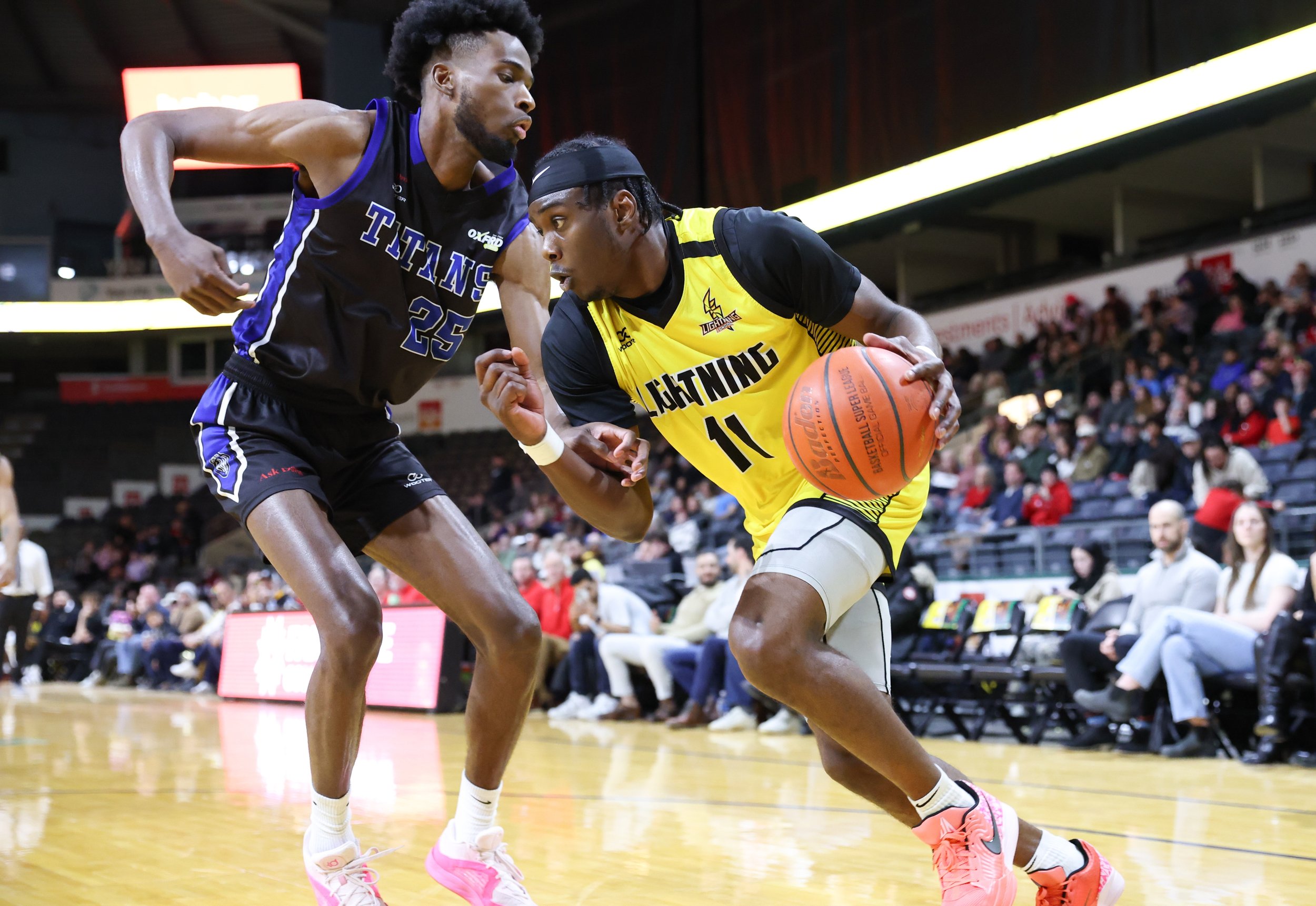


Around the Perimeter: London set for one-game playoff in New York. Winner moves on to semi; Coach Williams believes he’s found the right mix; Can Lightning conquer the Jackals’ den? …